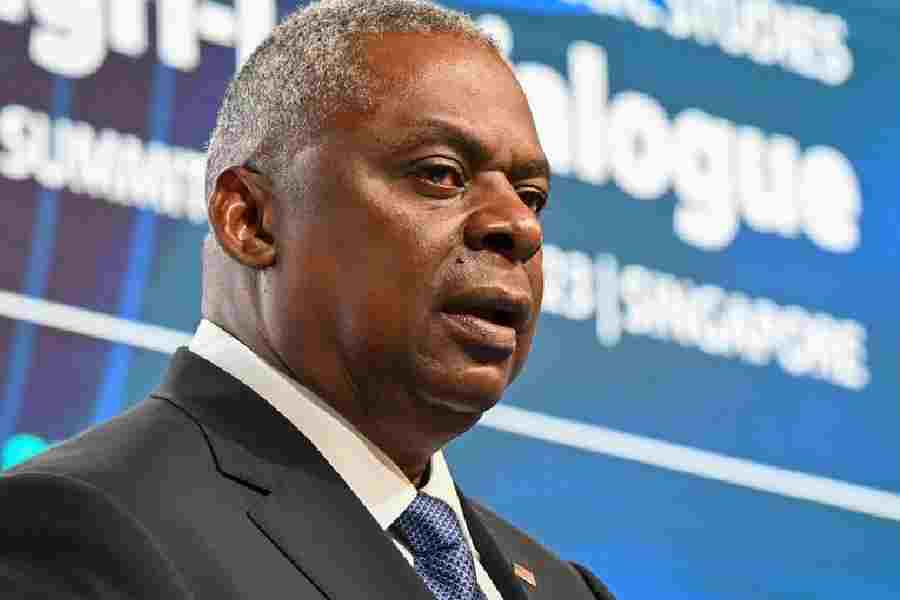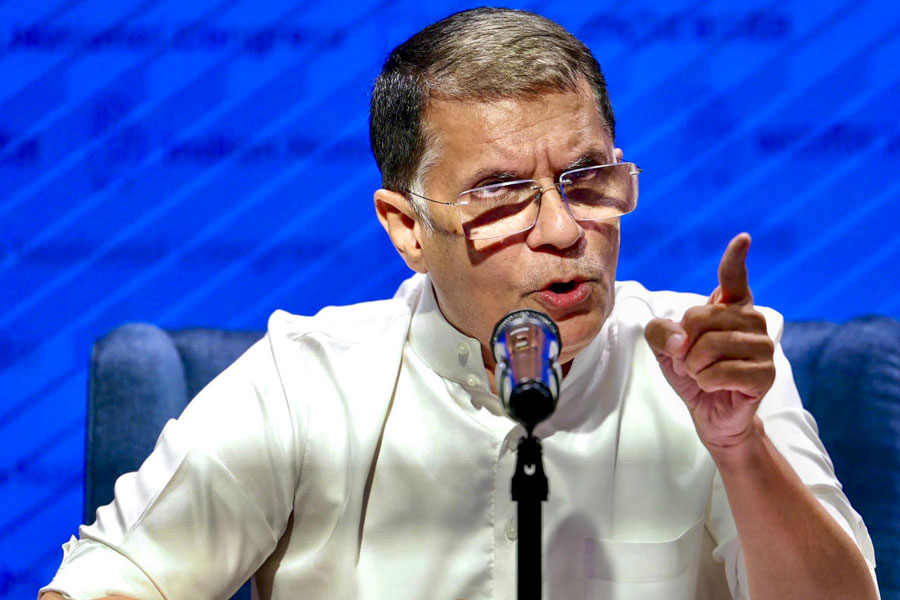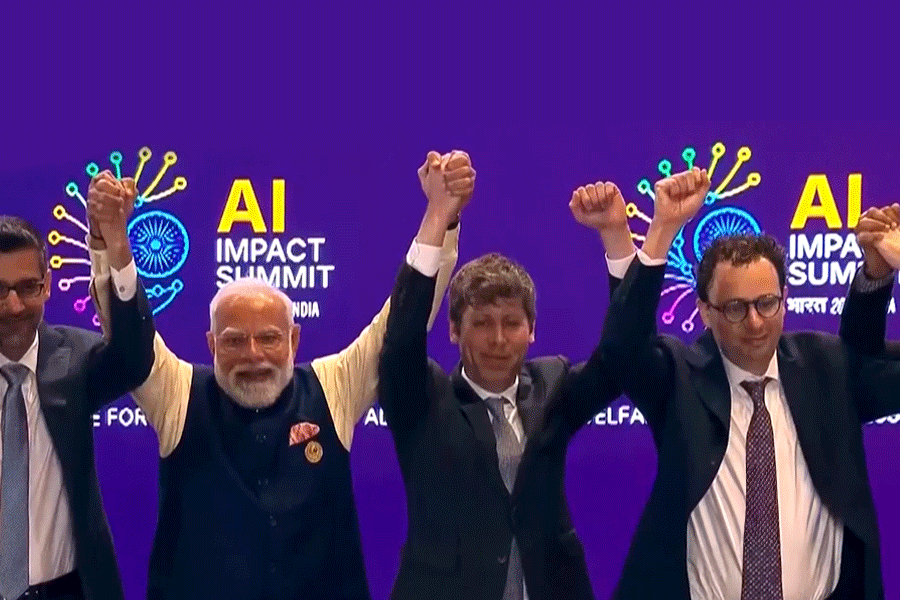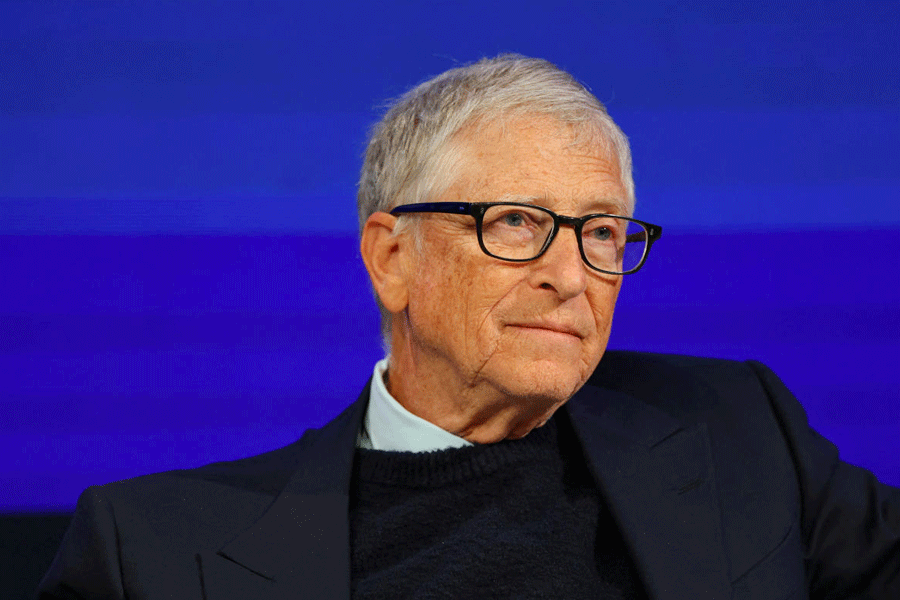The United States Secretary of Defense Lloyd Austin, on Saturday, criticized China for its unwillingness to engage regarding military crisis management after Beijing declined an official invitation for a meeting between him and his counterpart.
"I am deeply concerned that the PRC (People's Republic of China) has been unwilling to engage more seriously on better mechanisms for crisis management between our two militaries," Austin said at Asia's top security summit in Singapore.
"The more that we talk, the more that we can avoid the misunderstandings and miscalculations that could lead to crisis or conflict."
Austin and his Chinese counterpart Li Shangfu briefly spoke and shook hands at the opening dinner of the Shangri-La Dialogue defense summit in Singapore. However, the interaction fell short of the Pentagon's hopes for a more substantive exchange.
A senior official from China's People's Liberation Army (PLA) strongly denied Austin's contention that Beijing was not engaging enough in military crisis management.
Lieutenant General Jing Jianfeng also said China sticks by its belief that it has sovereignty over islands in the South China Sea and nearby waters.
What's the current state of US-China ties?
Relations between the US and China are at an all time low over a number of reasons, including disagreements over the status of Taiwan, spy balloons and espionage, territorial disputes in the South China Sea and the ongoing war in Ukraine.
"A cordial handshake over dinner is no substitute for a substantive engagement," the US defense chief said. "The United States does not seek a new Cold War. Competition must never spill over into conflict."
Austin is currently on a tour in Asia where he held a bilateral meeting with Japan's Defense Minister Yasukazu Hamada on June 1. He will next visit India in an effort to shore up support in the region which could help counter China.
Meanwhile, the spokesperson for the Chinese embassy in Washington, Liu Pengyu, accused the US of working against Beijing's interests. "The US says it wants to speak to the Chinese side while seeking to suppress China through all possible means and continue imposing sanctions on Chinese officials, institutions and companies," he said in a statement on Friday.
"Is there any sincerity in and significance of any communication like this?"
The US, in collaboration with allies in the Indo-Pacific region, has increased its military presence in the South China Sea to counter territorial claims made by China. This includes regularly sailing through and flying over the Taiwan Strait and in the South China Sea.
"We are committed to ensuring that every country can fly, sail and operate wherever international law allows," he said. "And every country, large or small, must remain free to conduct lawful maritime activities."
The most delicate issue
Amid a plethora of diplomatic, military and economic issues between the US and China, Taiwan remains the most delicate one.
Beijing views the self-ruled, democratic island as a Chinese province.
The US does not have formal diplomatic ties to Taipei. Washington, however, maintains unofficial relations and is a key supplier of weapons to the territory. Both sides also enjoy robust trade ties, accounting of billions of dollars annually.
Tensions between the US and China heightened after a controversial visit to Taiwan in August 2022 by then speaker of the US House of Representatives, Nancy Pelosi.
Beijing slammed the trip and held massive military drills around the island.
Since then, a number of high-ranking US officials have visited Taiwan, drawing China's ire.
The US on Thursday signed a trade agreement with Taipei aimed at strengthening bilateral commercial relations despite vehement opposition from Beijing.
US 'deeply committed' to Taiwan status quo
Speaking at the summit in Singapore, Austin pointed to Russia's invasion of Ukraine, using it to illustrate "how dangerous our world would become if big countries could just invade their peaceful neighbors with impunity."
"Conflict is neither imminent nor inevitable. Deterrence is strong today and it's our job to keep it that way," Austin said, adding that the US was "deeply committed" to preserving the status quo in Taiwan.










